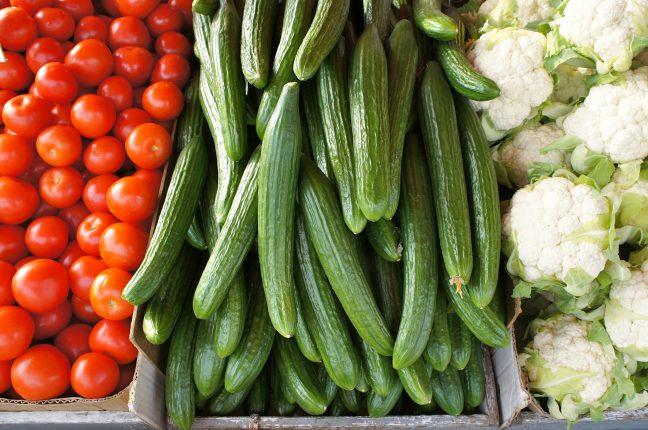For thousands of Wisconsinites that receive Supplemental Nutrition Assistance Program benefits each month, trips to some farmers markets across the state may become virtually inaccessible within the next six months.
Many farmers markets across Wisconsin use the Mobile Market+ app, provided by the software company Novo Dia, to process SNAP benefits. The app was briefly in danger of being shut down, but after an outcry due to the lack of service, the New York Farmers Market Federation announced an agreement that extends service of the Mobile Market+ app until February 2019.
Dane County and the surrounding area, which use a different service than Mobile Market+ to process SNAP benefits, are not at risk of losing service in February. But 18 farmers markets across the state do use it, and if a long-term solution is not found, this problem will still be widespread throughout Wisconsin and across the country. Surprisingly, this misfortune is not the result of a change in policy, but by a lack of technological resources.
The Mobile Market+ app works by conveniently swiping an electronic benefits card on an Apple device. But the finances behind the app are much less simple. SNAP transactions are highly regulated and require more security measures than credit or debit cards, making them more expensive to regulate. Markets and even individual farmers’ process the micropayments, which could be as little as a few dollars, making the app’s profit extremely small. The frosting on the cake, however, was when the United States Department of Agriculture decided to work with another company rather than Novo Dia and the Mobile Market+ app.
UW student receives scholarship to study accessibility of farmers’ markets for low-income residents
“Once it became clear that we were not going to be part of it, we knew we would not be able to scale in a manner that allowed us to be profitable or even sustainable,” Josh Wiles the founder and president of Novo Dia said.
The new company the USDA contracted, Financial Transaction Management, began accepting applications for new equipment last month, but have no obligation to provide equipment to farmers’ markets that received equipment from the previous program. A disruption in SNAP payment processing threatens the prosperity of farmers and prevents underprivileged households from accessing affordable, healthy produce.
“ … that blow would be lessened by the ability of markets to receive equipment through the federal program,” Ben Feldman of the Farmers Market Coalition said. “Unfortunately, that program is not up and running yet and that obviously is a problem for our industry.”
This technological and financial oversight shows how out of touch Washington is with underprivileged Americans.
Food justice activist places communities of color at center of agriculture narrative
In the period of time it takes to change programs, at least for the farmers’ markets that can afford to make the change, thousands of Americans will be robbed of the simple liberty of choosing what to feed their families. Fresh produce is already inaccessible to many low-income households at traditional supermarkets, so this gap in service could increase food insecurity and further deepen the socioeconomic health inequality. Some have questioned whether people underestimate how much underprivileged households rely on fresh produce — it would explain how this situation came to be. But the very question stigmatizes SNAP recipients. A low-income household is comprised of human beings, just the same as any other income level. Of course, low-income households rely on fresh produce — every other household in America does. Who wouldn’t want fresh food for their family?
New restrictions and requirements surrounding SNAP benefits have been around since the program’s inception. Should there be mandatory drug tests for those who receive aid? Scott Walker believes so. Should SNAP recipients have the freedom to shop like every other American and choose what food is best for their family? White House budget coordinator Mick Mulvaney said no. But these politicians have been asking the wrong questions. There is no point in adding requirements or restrictions to receiving aid if recipients cannot even have their benefits processed. This technological oversight shows that Washington would rather stigmatize aid recipients than make the aid accessible. A lack of affordable, effective technology being the barrier between health and stigma is ridiculous. The bottom line is all Americans should have access to healthy food. Without it, there is no way America can be the great country that so many believe it is.
Abigail Steinberg ([email protected]) is a sophomore majoring in political science and intending to major in journalism.
____
Correction: This article originally said the Dane County Farmer’s Market is no longer able to process SNAP benefits and that Novo Dia customers experienced a gap in service starting Aug. 31. It has since been updated to reflect the fact that SNAP benefits can still be processed at the Dane County Farmer’s Market, that Novo Dia customers have not experienced any gap in service since Aug. 31, and that the Dane County Farmer’s Market and other farmer’s markets in the area are not at risk of losing SNAP processor service in the foreseeable future. The Badger Herald regrets these errors.














